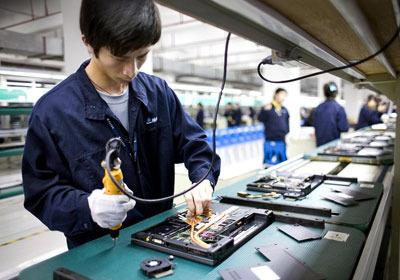Introduction
Information technology (IT stands for Information Technology) refers to sensing technology, communication technology, computer technology and control technology. Maybe you are not satisfied with this definition, but it is indeed a concise, specific, systematic, and practical definition.
Sensing technology is the technology of acquiring information, communication technology is the technology of transmitting information, computer technology is the technology of processing information, and control technology is the technology of using information. Therefore, this definition not only gives the content of information technology, but also clarifies the acquisition-transmission-processing-utilization system of information technology. It also clarifies the concepts of sensing, communication, computer, and control. The role and interrelationship of technologies in information systems that are relatively clear, clear in fields, and more perceptual to the public.
Although the four technologies of sensing, communication, computer and control perform their own duties in the information system, they are mutually contained, intersected, and integrated from the perspective of technical elements. Sensing, communication, and computer are inseparable from control; sensing, computer, and control are also inseparable from communication; sensing, communication, and control are inseparable from computers.
All data and materials useful to human social activities can be called information.
In a broad sense, information includes not only information about the production and operation activities of enterprises, but also information about the national economy and even the world's economic activities; not only includes economic information, but also includes scientific and technological information, social and cultural information, and life information.
Information in a narrow sense mainly refers to micro- and macro-economic information related to the production and operation of enterprises. Information means and information technology mainly refer to computer systems engaged in information processing, public opinion and communication tools engaged in information transmission, and corresponding information science theories. Therefore, the information technology industry refers to the production, circulation and sales of information and corresponding information science theories.

Type
The information technology industry mainly includes three industrial sectors:
Information processing and service industry
①Information processing and service industry , This industry is characterized by the use of modern electronic computer systems to collect, process, organize, and store information, and provide a variety of information services for various industries, such as computer centers, information centers, and consulting companies.
Information processing equipment industry
②Information processing equipment industry, which is characterized by the research and production of electronic computers (including hardware manufacturing of related machines) and computer software development activities. Computer manufacturing companies, software development companies, etc. can be counted as this industry.
Information delivery intermediary industry
③Information delivery intermediary industry, which is characterized by the use of modern information delivery intermediaries to deliver information to the destination in a timely, accurate and complete manner. Therefore, printing, publishing, news and broadcasting, communications, post and telecommunications, and advertising can all be included.
The primary information industry and the secondary information industry
The information industry can be divided into the primary information industry and the secondary information industry. The former includes: traditional means of goods and services for transmitting information and intelligence The latter refers to services provided to internal consumers such as governments, enterprises and individuals.
Significance
The information technology industry is a new industry. It is built on the basis of modern scientific theories and science and technology, and adopts advanced theories and communication technology. It is a high-tech service industry. The development of the information industry is of great significance to the development of the entire national economy. Through its activities, the information industry makes the transmission of economic information more timely, accurate and comprehensive, which is conducive to the improvement of labor productivity in various industries; the information technology industry accelerates the transmission of science and technology. It has shortened the distance between the creation of science and technology and its application in the field of production; the development of the information industry has promoted the development of technology-intensive industries, which is conducive to the adjustment of the national economic structure.
It is precisely because of these advantages that since the emergence of computer technology, information technology has made rapid progress. Its application has penetrated into all walks of life and every corner of society, greatly improving the level of social productivity, and bringing unprecedented convenience and benefits to people's work, study and life.
Although today's information technology has brought people unprecedented benefits, the pace of technological advancement will not stop. In the technological change facing the 21st century, the development direction of information technology will be intelligent.
Today's information technology has surpassed the ability of the human brain in information processing in some aspects, such as memory ability, calculation ability, etc.; but in many aspects, it is still inferior to the human brain, such as words Recognition, speech recognition, fuzzy judgment, fuzzy reasoning, etc. It is especially important that the human brain can continuously improve its information processing capabilities through self-learning, self-organization, and self-adaptation; and all the capabilities of a stored-program computer are given to it through programming, which is compared with the human brain. Mechanical, rigid and incapable of self-improvement.
In response to the above problems, people have been studying intelligence theory and technology many years ago, exploring the mechanism of human brain information processing, so that machines can better simulate the functions of the human brain. Through decades of hard work, great progress has been made in intelligence theory and technology. It is these developments that provide the foundation for the intelligentization of information technology.
